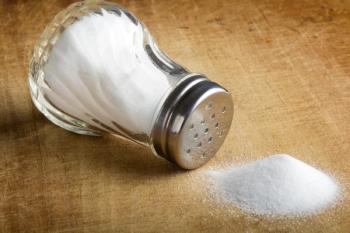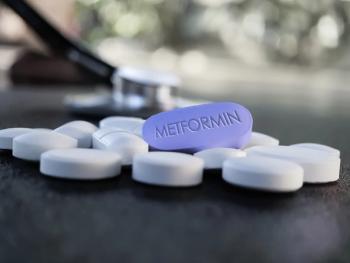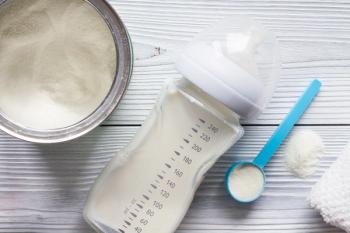
Imported and homemade formulas rising in popularity, causing concern
Parents may be turning to formula made in the home or imported from Europe to help with their child's food allergies, but there are a number of concerns.
Do an internet search for homemade infant formula, and a number of highly-rated recipes quickly appear. For whatever reason, more and more parents are looking beyond the standard offerings in the United States—making their own or importing foreign formulas. Even
Steven Abrams, MD, a pediatrics professor at the University of Texas Austin’s Dell Medical School, has written guidance on imported and homemade formulas for the American Academy of Pediatrics and says some parents look for unconventional formula options in an attempt to mitigate food allergies, but there are bigger concerns.
First, when it comes to allergies, Abrams cautions that “hypoallergenic” has different criteria under European Union standards compared to that of the US Food and Drug Administration (FDA). So parents might not get what they believe they are getting in terms of allergy avoidance. Nutritional standards can be different, too, but Abrams says it’s the importation of foreign formulas and the lack of regulation on these and homemade options that is more worrying.
“The nutrient standard might be a little different, but that’s not actually the biggest concern,” he said. “It’s not just what’s in the formula, but also the way it’s imported.”
FDA-approved imported formulas are held to rigorous standards when it comes to how they are stored and transported, and what shelf life is acceptable. Although the formulas themselves may be fine nutritionally, Abrams said there are concerns about how formulas imported outside of the FDA’s oversight are brought into the country.
“The FDA’s regulation on infant formula is the tightest of any food product that’s out there, and for good reason. When you get rid of that regulation, you have challenges,” Abrams said. “If you allow formula that doesn’t meet US standards to be sold, where do you draw the line? Plus, there’s no particular benefit to these formulas.”
The Centers for Disease Control and Prevention3 and the FDA4 both warn parents about buying imported formulas, echoing Abrams in saying that there are no proven health benefits of imported options.
Some parents may be enticed by the simple labeling and branding of imported formulas, or the claim that they are more milk-based. However, Abrams says some of these formulas are actually identical to brands made in the United States.
Homemade formulas are another cause for worry. Although homemade formulas made from cow’s milk and canned milk were pretty common in the 1950s, there is a trend now to make formulas from other “milk” products that are vegan or even hemp-based, he says.
“We recommend even more strongly against homemade formulas,” he warned, citing an FDA case study about infants fed with a homemade hemp-based formula that developed severe hypocalcemia and rickets.5
Cost isn’t usually the issue that drives parents when it comes to imported or homemade formulas, he explained. As a matter of fact, many parents who pursue these options are at the higher end of the income spectrum.
“They are generally upper income parents that don’t trust the government or believe what they read online. They don’t think the FDA is doing as well as they are in Europe. When the United States loses the power to regulate, you have a mess on your hands, to say the least.”
Pediatricians need to be asking questions about what formulas parents are using for their infants in a non-judgmental way, and educate them on safety concerns.
If the reason is financial—this happens more with homemade or diluted formulas—direct them to organizations and programs that can help provide them with resources for formula, he says.
For families who are distrustful of the government or have nutritional concerns, it’s vital that pediatricians provide education, focusing on the lack of oversight on nutritional contents, production, and storage of these products.
“If you let anyone market anything as infant formula, you’re going to end up with trouble,“ Abrams said.
References
1.Szalinski C. Why US parents are choosing European baby formula. Published March 12, 2021. Accessed October 8, 2021.
2. Abrams S. Is homemade baby formula safe? Updated March 5, 2021. Accessed October 8, 2021.
3. Centers for Disease Control and Prevention. Choosing an Infant Formula. Accessed October 8, 2021.
4. US Food and Drug Administration. FDA advises parents and caregivers to not make or feed homemade infant formula to infants. Published February 24, 2021. Accessed October 8, 2021.
5. Calello DP, Jefri M, Yu M, Zarraga J, Bergamo D, Hamilton R. Notes from the field: vitamin D–deficient rickets and severe hypocalcemia in infants fed homemade alkaline diet formula — three states, August 2020–February 2021. MMWR Morb Mortal Wkly Rep 2021;70:1124–1125. doi: 10.15585/mmwr.mm7033a4
Newsletter
Access practical, evidence-based guidance to support better care for our youngest patients. Join our email list for the latest clinical updates.






